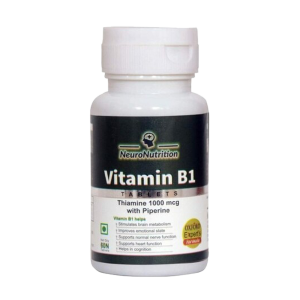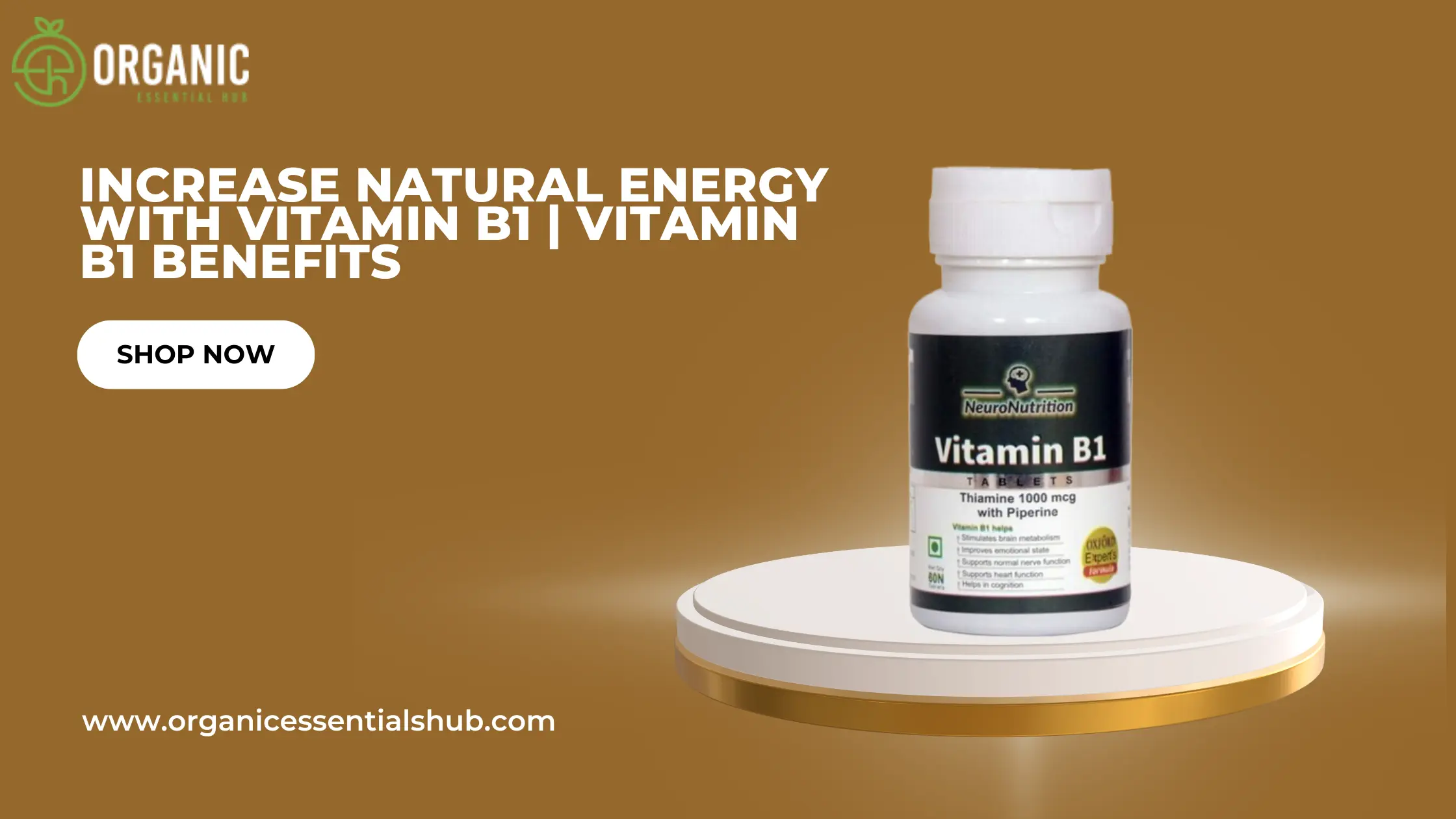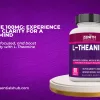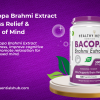Increase Natural Energy with Vitamin B1 | Vitamin B1 Benefits

Do you frequently feel exhausted or perhaps struggle to produce the energy necessary to perform your daily routines? The likely scenario is that your body desperately needs more Vitamin B1! This crucial Vitamin, which goes by the alternative name of thiamine, performs a necessary and essential task in the process of energy generation as well as in ensuring total health and happiness. Throughout the course of this article, we will take an in-depth look at the astounding advantages of using vitamin B1, explore the most suitable sources through which you can obtain vitamin B1, and discuss the ways in which incorporating foods full of vitamin B1 into your daily diet successfully works to promote your natural levels of energy.
What is Vitamin B1?
Thiamine is a water-soluble vitamin that plays a significant role in the body’s ability to metabolize the foods we consume into usable energy. This particular vitamin is essential in the process of breaking down carbohydrates so that they can be utilized to create glucose, a fundamental source of energy for the body. It also assists the nervous system by ensuring proper nerve function and communication, which enables all of the body’s systems to function efficiently and effectively. Because our bodies do not retain Vitamin B1 in significant quantities, it is essential that we include this valuable nutrient on a regular basis in our diets, either through foods we consume or by taking dietary supplements.
How Vitamin B1 Boosts Natural Energy
It plays an absolutely essential role in the conversion of carbohydrates into energy that can be used by the body. Let us take a closer look at how it carries out this very important task:
1. Boosts Metabolism
Thiamine actively combines with numerous enzymes in the breakdown of glucose, a simple sugar that is one of our bodies’ main sources of fuel. This enzymatic activity allows your body to make good use of glucose, leading to a noticeable increase in energy levels and a remarkable reduction in fatigue, thus enhancing overall vitality.
2. Enables Nerve Function
Having healthy nerves is absolutely essential to assist in the generation of energy as well as to allow free movement. Vitamin B1 has a very significant part to play in ensuring proper nerve signaling within the body. This helps both your brain and muscles to function at their optimum levels, thereby achieving coordination and responsiveness in daily activities.
3. Enhances Brain Function
Thiamine plays a vitally important role in making sure that cognitive function and general brain activity are assured. It plays a key role in assisting basic mental processes such as memory, concentration, and focus. Its assistance is paramount in keeping people alert, engaged, and productive in their daily functions and responsibilities.
4. Reduces Fatigue and Weakness
Critical lack of Thiamine can lead to chronic fatigue and overall muscle weakness. When the levels of this essential vitamin are maintained healthily, people can prevent feeling lethargic successfully, which in turn keeps them feeling significantly more energetic and rejuvenated during the course of the day.
Best Sources of Thiamine
Incorporating foods rich in Vitamin B1 into your normal diet can guarantee you adequate supplies of this essential nutrient. A few of the richest vitamin B1 sources are:
- Whole Grains: Oats, brown rice, and whole wheat bread
- Legumes: Lentils, peas, and beans
- Nuts and Seeds: Almonds, flaxseeds, and sunflower seeds
- Meat and Fish: Lean beef, pork, and salmon
- Vegetables: Brussels sprouts, asparagus, and spinach
- Dairy Products: Yogurt, cheese, and milk
- Vitamin B1 Deficiency and Symptoms
- If you lack enough Vitamin B1, you may develop:
- Weakness and fatigue
- Memory loss
- Numbness or nerve damage
- Loss of appetite
- Irritability and mood swings
- Including Vitamin B1-containing foods in your diet can prevent these symptoms and keep your body in prime working condition.
- How to Include More Vitamin B1 in Your Diet
Including Vitamin B1-containing foods in your diet is simple. Here are some quick pointers:
- Begin the day by eating a bowl of oatmeal or whole-grain cereal.
- Eat nuts and seeds as snacks during the day.
- Make lean meat or fish a part of your lunch or dinner.
- Add legumes and green vegetables to meals in greater quantities.
- Eat whole-grain bread instead of white bread for making sandwiches.
Can Vitamin B1 Supplements Be Taken?
If you are struggling to get adequate amounts of Vitamin B1 through the foods in your diet, consider that taking supplements can be a good idea. There are many multivitamin products currently available that have thiamine as one of their main components, or else you can simply take it in the form of a single, dedicated supplement to this end. Nevertheless, it is strongly recommended and always sound practice to go and see a healthcare professional before adding any new supplement to your daily regimen so that you can be sure that it will integrate well with your specific health requirements.
Vitamin B1, also known as thiamine, is critical for the body’s energy production, keeps the brain functioning at its best, and is fundamental to overall well-being and health. By taking the conscious step of consuming vitamin B1-rich foods as a regular part of your diet, you can naturally increase your energy levels with ease, enabling you to remain active and vibrant all day long. Regardless of whether you choose to obtain this critical nutrient from a diverse array of foods or through supplements, maintaining healthy levels of vitamin B1 can have a profound impact on the way you feel every day.




Add comment